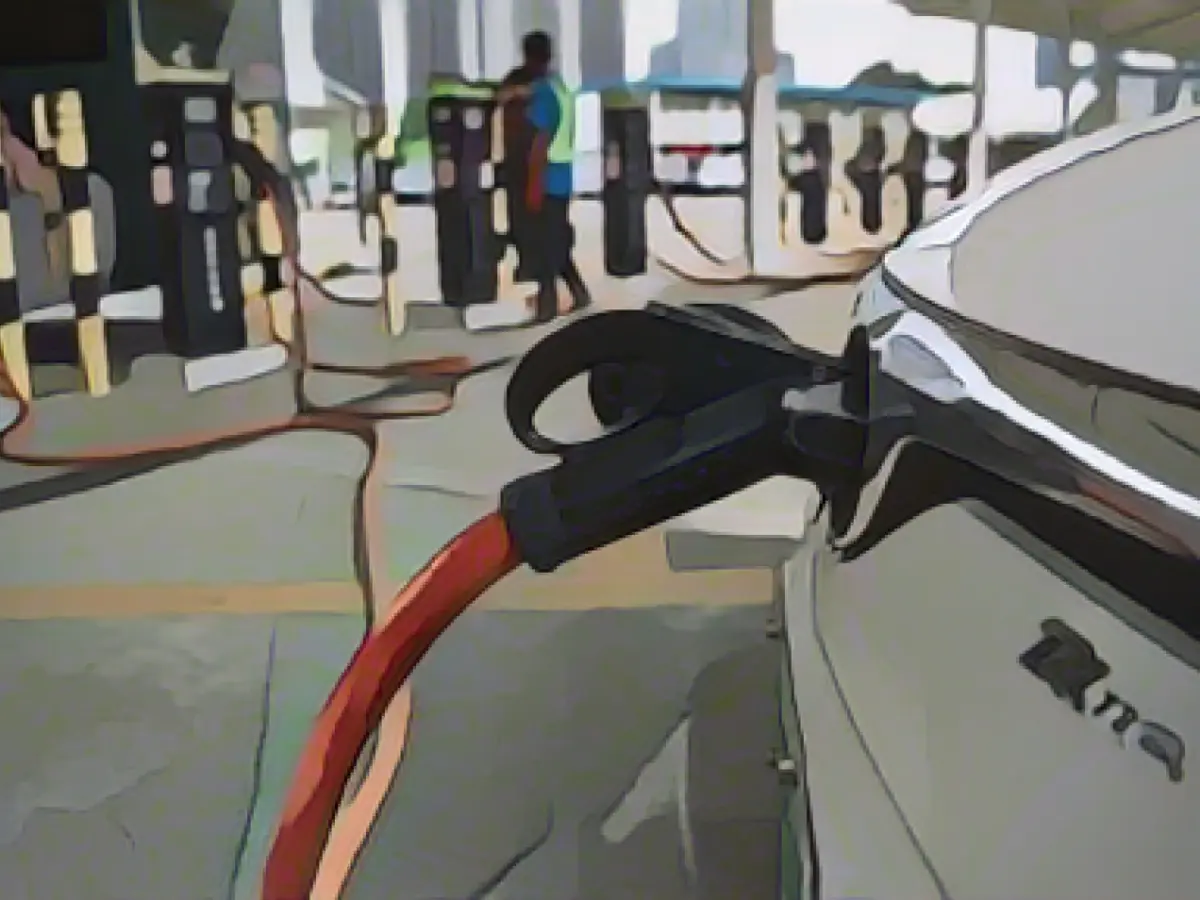Title: "Surprise Cessation of E-Car Funding: Habeck's Ministry Justifies Actions Amidst Criticism"
The Federal Ministry of Economics, spearheaded by Robert Habeck, found itself in an unfortunate situation, defending the abrupt termination of the e-car funding program. The swift withdrawal of support, which had been met with disappointment among those anticipating the funding, was attributed to a lack of available funds.
The decision to discontinue the funding grant at short notice was a collective decision made with the Federal Chancellery. In response to the criticism directed towards the hasty conclusion, the ministry brushed off the one-sided criticisms, emphasizing the financial limitations.
Critics, including the SPD parliamentary group in the Bundestag, lambasted the abrupt withdrawal as "extremely unfortunate." Their concerns centered around organizing a more reliable transition for the affected individuals. However, according to Habeck's ministry, all funds allocated for 2023 had been exhausted. As a result, the funds earmarked for 2024 to the tune of 209 million euros could only suffice if the funding ended promptly.
Recent applications, numbering around 1,400 per day with an average funding amount of 4,000 euros, led to an estimated 5.6 million euros in additional costs for each day the applications continued. This prompted the consideration of ending the applications by the end of the year, thereby saving around 80 million euros.
Financial Constraints and Criticisms
The Federal Ministry of Economics argued that the quick termination was a necessity due to the ministry's already expended funds for 2023. The decision to cut back on the funding program was met with opposition and criticism, with politicians urging for alternative solutions promoting electric vehicle adoption under the current circumstances.
Enrichment Insights
The sudden cessation of the e-car funding program stemmed from a court ruling and subsequent political decisions. Key reasons and implications include:
- Court Ruling: In November, 2023, Germany's highest court declared an integral part of the outgoing coalition government's funding plan for climate and energy programs unlawful. This judgment, resulting from a lawsuit filed by the CDU/CSU alliance under opposition leader Friedrich Merz, disrupted the coalition's funding plans, leading to the program's early termination.
- Debt Brake: The court's decision was linked to the debt brake, a constitutional rule that stipulates that new debt must not exceed 0.35 percent of annual economic output. The CDU/CSU and former coalition member FDP initially opposed altering the debt brake, but public surveys indicated that a majority preferred investments in areas like climate, defense, or infrastructure over adhering to the debt brake.
- Policy Zig-Zag: The abrupt subsidy cuts in 2023 underscored the high costs of policy zig-zag. Most experts agreed that the inconsistency in electromobility funding policies contributed to uncertainty and confusion within the automotive industry. The removal of state subsidies for electric cars in December 2023 further exacerbated the issue, affecting consumers and automakers' ability to plan for the future.
The consequences of this sudden termination resulted in uncertainty, negative impacts on electric vehicle sales, and highlighted the requirement for a consistent strategy to support the transition to alternative modes of private transportation.




